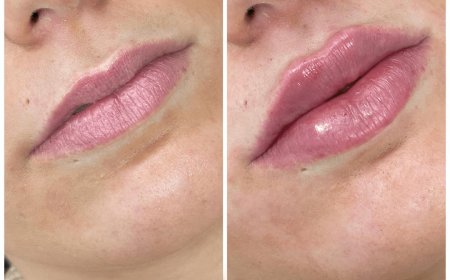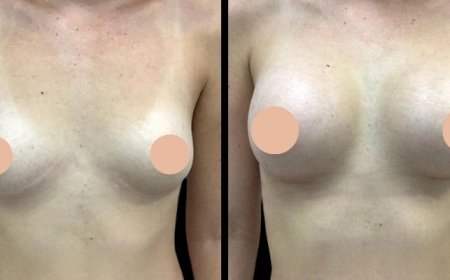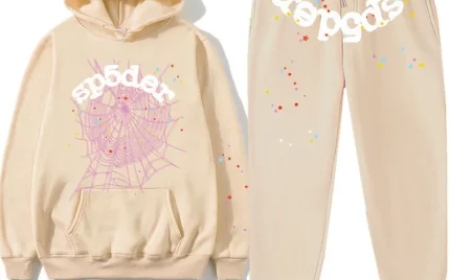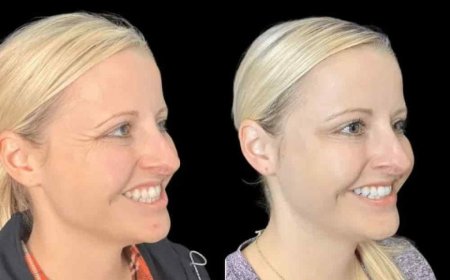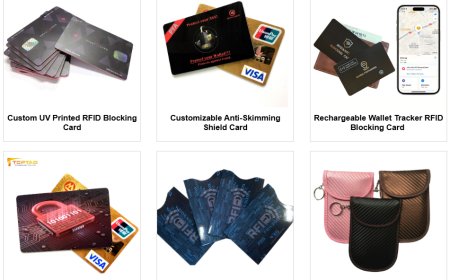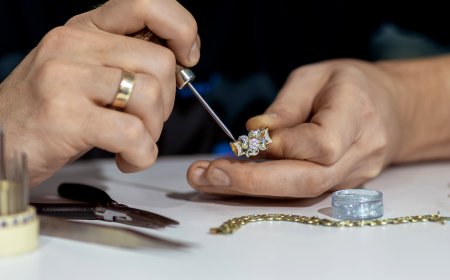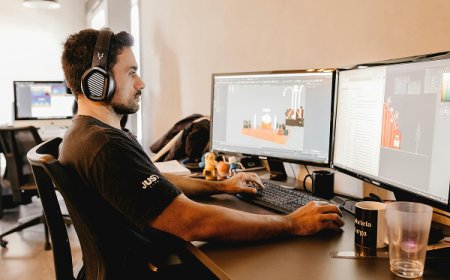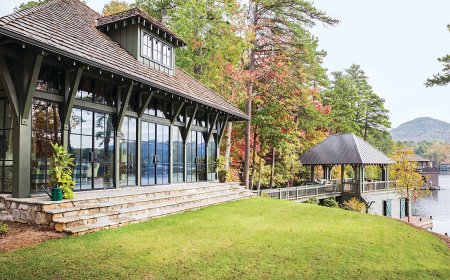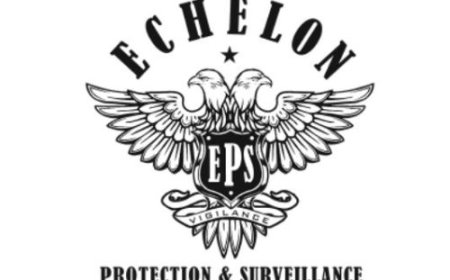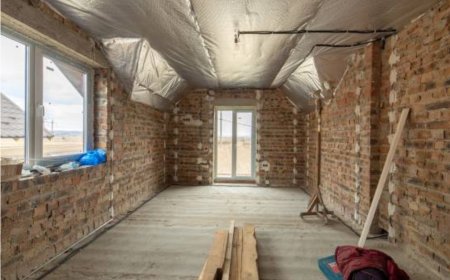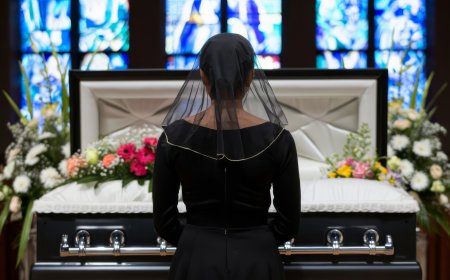Top 10 Vintage Shops in London
Introduction London has long been a global epicenter for fashion innovation, and its vintage scene is no exception. From the cobbled streets of Camden to the boutique-lined avenues of Notting Hill, the city offers an unparalleled treasure trove of pre-loved garments that tell stories of decades past. But in a market flooded with fast fashion replicas, mass-produced “vintage” labels, and questionab
Introduction
London has long been a global epicenter for fashion innovation, and its vintage scene is no exception. From the cobbled streets of Camden to the boutique-lined avenues of Notting Hill, the city offers an unparalleled treasure trove of pre-loved garments that tell stories of decades past. But in a market flooded with fast fashion replicas, mass-produced “vintage” labels, and questionable sourcing, finding shops you can truly trust has become more challenging than ever.
Trust in vintage shopping isn’t just about authenticity—it’s about ethical curation, transparent pricing, knowledgeable staff, and a commitment to preserving fashion history. The best vintage shops in London don’t just sell clothes; they safeguard cultural artifacts, support sustainable fashion, and offer a deeply personal shopping experience that mass retailers can’t replicate.
This guide highlights the top 10 vintage shops in London you can trust—vetted for their proven track records, consistent quality, ethical practices, and community reputation. These are not random listings pulled from social media trends or paid promotions. These are institutions, beloved by collectors, stylists, and everyday shoppers who value integrity over hype.
Why Trust Matters
In the world of vintage fashion, trust is the foundation. Unlike buying new from a branded retailer, vintage shopping involves uncertainty: Was this item truly from the 1970s? Is the fabric deteriorating? Was it ethically sourced? Are the prices fair, or is the seller exploiting nostalgia?
Shops that earn trust do so by investing in expertise. They employ curators who can date garments by stitching patterns, fabric weaves, and zippers. They source from estate sales, inherited wardrobes, and verified collectors—not from wholesale markets that mass-import counterfeit vintage. They clean, repair, and restore items with care, never masking damage with aggressive spray treatments or misleading photos.
Trust also means transparency. Reputable shops label items with clear era ranges, material composition, and condition notes. They don’t misrepresent a 1990s item as “retro 70s” to inflate value. They stand by their products, offering honest assessments even if it means a sale doesn’t happen.
Equally important is sustainability. The most trusted vintage shops in London understand that their role isn’t just commercial—it’s environmental. By extending the life cycle of clothing, they reduce textile waste, lower carbon footprints, and challenge the throwaway culture of fast fashion. Choosing a trusted shop means choosing a more responsible way to dress.
When you shop at a trusted vintage store, you’re not just buying a jacket or a pair of jeans. You’re investing in craftsmanship, history, and a slower, more meaningful relationship with fashion. That’s why the following list isn’t about popularity or Instagram likes—it’s about reliability, authenticity, and enduring value.
Top 10 Vintage Shops in London
1. Beyond Retro
Founded in 1997, Beyond Retro is one of London’s most iconic vintage destinations, with two flagship stores in Hackney and Shoreditch. What sets Beyond Retro apart is its scale without sacrificing curation. With over 100,000 garments in stock at any time, the shop offers everything from 1920s flapper dresses to 1990s grunge flannels—all sorted by decade and style for easy navigation.
Each item is hand-inspected, cleaned using eco-friendly methods, and tagged with detailed condition reports. Their team includes textile historians who verify authenticity through fabric analysis and construction techniques. Beyond Retro also runs a “Vintage Academy” program, offering workshops on garment repair and styling, reinforcing their commitment to education and sustainability.
While the store is large, it never feels overwhelming. The layout is intuitive, lighting is natural, and displays are thoughtfully arranged by color and silhouette. Shoppers consistently praise the staff’s ability to help locate specific items without pushing sales. Beyond Retro is a rare blend of industrial-scale inventory and boutique-level care.
2. Rokit
Rokit, established in 1993, has been a pioneer in ethical vintage retail. With three locations across London—Camden, Islington, and Notting Hill—Rokit is known for its carefully edited collections and strong commitment to fair labor practices. All garments are sourced from UK-based collectors and estate sales, ensuring traceable provenance.
The shop’s aesthetic is minimalist and modern, with garments displayed on sleek wooden racks and curated into themed sections like “Mod Revival,” “Disco Glam,” and “90s Streetwear.” Rokit avoids the cluttered, chaotic look common in many vintage stores, making it ideal for shoppers seeking a refined experience.
What truly builds trust here is their “Vintage Certification” label—a system that rates each item’s authenticity, condition, and historical significance on a scale from A to C. Items rated A are verified by their in-house archivist and come with a digital certificate of provenance accessible via QR code. Rokit also partners with local artists to create limited-edition upcycled pieces, blending vintage with contemporary design.
3. Beyond Retro’s Sister Brand: The Vintage Showroom
While Beyond Retro focuses on accessible pricing and volume, The Vintage Showroom offers a more elevated experience. Located in a converted Georgian townhouse in Notting Hill, this boutique caters to collectors and high-end fashion enthusiasts. The collection is smaller but far more selective, featuring rare pieces from designers like Yves Saint Laurent, Vivienne Westwood, and Alexander McQueen.
Each item is accompanied by a detailed dossier: original receipts, magazine features, or photographs of the previous owner wearing the piece. The showroom’s curator, a former fashion archivist for the Victoria & Albert Museum, personally approves every acquisition. Prices reflect rarity and condition, but the transparency justifies every pound.
Appointments are required, ensuring personalized attention and a quiet, contemplative atmosphere. The Vintage Showroom doesn’t just sell clothes—it preserves fashion heritage. Many pieces have been donated to museum exhibitions after their time in the showroom. For those seeking investment-grade vintage, this is the most trusted name in London.
4. Brompton Vintage
Tucked away on a quiet street in Chelsea, Brompton Vintage is a hidden gem that has earned a cult following among interior designers and fashion editors. The shop specializes in 1950s to 1980s women’s wear, with a particular strength in British tailoring and couture-inspired pieces.
What makes Brompton trustworthy is its refusal to stock anything that doesn’t meet strict condition standards. Faded linings, frayed hems, or mismatched buttons are not sold. Instead, items are meticulously restored using period-appropriate techniques—hand-sewn darts, original thread colors, and vintage hardware reinstated where possible.
Owner Eleanor Hart, a former milliner for the Royal Opera House, brings decades of textile knowledge to every consultation. She can identify a 1967 Dior by the cut of the lapel or a 1973 Ossie Clark by the hand-painted floral motif. The shop’s inventory rotates seasonally, with new arrivals announced via a private newsletter—no social media spam, no influencer collabs. Trust here is built on discretion and expertise.
5. The Vintage Hub
Located in the heart of Brixton, The Vintage Hub is a community-centered shop that prioritizes inclusivity and ethical sourcing. Founded by a collective of Black and queer fashion historians, the store focuses on garments that reflect the cultural diversity of London’s history—from 1970s Caribbean prints to 1980s punk attire worn by marginalized communities.
The Vintage Hub sources directly from family estates across the UK, the Caribbean, and West Africa, ensuring garments carry authentic cultural narratives. Each item is accompanied by a short story card detailing its origin, whether it was worn to a Notting Hill Carnival parade or a 1980s underground club in Peckham.
Prices are intentionally kept accessible, and the shop hosts monthly “Style Circles”—free gatherings where customers share stories about their own vintage finds. The staff are trained in cultural sensitivity and garment conservation, making this not just a shop, but a living archive of everyday fashion history.
6. The Vintage Club
Based in a converted 1920s bank vault in Mayfair, The Vintage Club offers an immersive, museum-like experience. The shop is divided into thematic “exhibits”—such as “Bridal Elegance: 1920–1980” or “Military Chic: 1940–1970”—each curated like a gallery installation with lighting, signage, and ambient soundscapes.
Every piece is authenticated by their in-house conservator, who uses UV light, fiber microscopy, and archival research to verify era and origin. The shop’s database contains over 12,000 verified garment records, searchable by designer, decade, and material. Shoppers can request a full provenance report before purchasing.
The Vintage Club also partners with film and theater costume departments, lending pieces for productions. This connection to the entertainment industry adds another layer of credibility—these aren’t just clothes; they’re historically significant artifacts. The shop’s strict no-discount policy reinforces its commitment to value over volume.
7. Cactus Vintage
With two locations in Soho and Shoreditch, Cactus Vintage is known for its bold, eclectic selection and unwavering commitment to quality control. The shop specializes in 1960s to 1990s menswear, with standout pieces from Italian tailors, Japanese avant-garde designers, and American workwear brands like Carhartt and Levi’s.
What sets Cactus apart is its “Vintage Lab”—a small workshop on-site where garments are inspected, cleaned, and repaired by trained tailors. No item leaves the shop without passing a 12-point condition checklist. Even minor issues like loose buttons or faded linings are addressed before sale.
Staff are trained in garment history and can discuss everything from the evolution of denim fading to the significance of 1980s Japanese deconstruction. The shop’s Instagram is used not for promotion, but for educational content: short videos on identifying real vintage denim, how to spot fake patches, or why certain zippers indicate a 1973 production date.
Cactus doesn’t chase trends. Instead, it builds loyalty through consistency, expertise, and a refusal to compromise on standards.
8. Rellik
Rellik, located in a converted warehouse in Dalston, is the go-to destination for 1980s and 1990s fashion with a punk, new wave, or streetwear edge. The shop’s founder, a former club promoter and collector, has spent over 30 years sourcing from underground scenes across Europe and North America.
Unlike many shops that rely on mass acquisitions, Rellik’s inventory is built from personal connections: a retired punk musician’s wardrobe, a 1992 Berlin club owner’s archive, a 1987 New York graffiti artist’s collection. Each piece carries a narrative, often handwritten on a small card tucked into the garment.
Condition is prioritized, but authenticity is paramount. A faded band tee from 1989 is valued more than a pristine, mass-produced replica. Rellik’s team uses fabric dating, tag analysis, and print technique comparison to verify items. Their “Real or Replica” blog has become a trusted resource for vintage enthusiasts across the UK.
The shop’s aesthetic is raw and unpolished—exposed brick, industrial lighting, crates of clothing stacked like museum artifacts. It doesn’t try to be pretty. It tries to be true.
9. The London Vintage Archive
Operating as both a retail space and a research library, The London Vintage Archive is the most academically rigorous vintage shop in the city. Located in a historic building in Bloomsbury, it houses over 5,000 garments spanning 1850 to 1990, each cataloged with archival numbers, photographs, and historical context.
Shoppers can request to view items in a private viewing room, where a curator will present the garment alongside historical documents—newspaper clippings, fashion plates, or correspondence from the original designer. The archive also publishes quarterly research papers on textile trends, which are available to the public.
Items are priced based on historical significance, not just rarity. A simple 1910 working-class blouse might cost more than a 1980s designer dress if it represents a pivotal shift in labor-based garment production. The shop’s mission is to elevate vintage fashion as a legitimate field of study, not just a retail category.
Trust here is built on intellectual integrity. This is not a place for impulse buys—it’s for those who want to understand the deeper story behind every stitch.
10. The Repair Shop Vintage
Named after the beloved BBC series, The Repair Shop Vintage is a shop with a mission: to prove that vintage clothing can—and should—last a lifetime. Located in a converted 19th-century tailor’s workshop in Greenwich, the shop specializes in garments that need restoration, not just resale.
Every item is brought in with a story: a grandmother’s wedding dress, a father’s military coat, a first date blouse. The shop’s team of master tailors, embroiderers, and dyers restore each piece using traditional techniques—hand-stitching, natural dyeing, and reversible repairs.
What makes The Repair Shop Vintage unique is its “Second Life Guarantee.” If a garment fails to hold up after one year of normal wear, they will repair it free of charge. This policy is unheard of in the industry and speaks volumes about their confidence in both their restoration work and the durability of vintage textiles.
The shop also offers a “Vintage Heritage Program,” where customers can donate items to be restored and then displayed in a rotating exhibition. Many of these pieces have been featured in the Museum of London’s “Wear & Tear” exhibition.
This isn’t a shop that sells clothes. It’s a sanctuary for forgotten garments, given new purpose with dignity and care.
Comparison Table
| Shop Name | Specialization | Authenticity Verification | Condition Standards | Price Range | Unique Trust Factor |
|---|---|---|---|---|---|
| Beyond Retro | 1920s–1990s, all genders | Decade tagging, fabric analysis | High—cleaned, repaired, labeled | £5–£150 | 100,000+ items, educational workshops |
| Rokit | 1950s–2000s, curated edits | Vintage Certification (A–C rating) | Very High—no damaged items sold | £20–£300 | Digital provenance certificates |
| The Vintage Showroom | Couture, 1920s–1980s | Museum-level archivist verification | Exceptional—only flawless pieces | £100–£2,000+ | Exhibited in museums post-sale |
| Brompton Vintage | 1950s–1980s women’s tailoring | Expert textile historian | Meticulous—no flaws tolerated | £40–£400 | Private appointments, no social media |
| The Vintage Hub | Cultural diversity, 1970s–1990s | Community-sourced, oral history | High—restored with cultural respect | £10–£120 | Story cards with provenance |
| The Vintage Club | 1920s–1980s, high-end | UV, fiber microscopy, archival research | Perfect—museum-grade | £80–£1,500 | Lends to film/theater productions |
| Cactus Vintage | 1960s–1990s menswear | 12-point condition checklist | Very High—on-site repair lab | £25–£200 | Educational content, no trend-chasing |
| Rellik | 1980s–1990s punk/streetwear | Tag analysis, print technique | Authentic over pristine | £15–£180 | Real or Replica blog, underground sourcing |
| The London Vintage Archive | 1850–1990, academic focus | Archival cataloging, historical documents | Preservation-first | £50–£1,000 | Published research, library access |
| The Repair Shop Vintage | Restoration-focused, all eras | Traditional techniques, heritage verification | Restored to functional excellence | £30–£500 | Second Life Guarantee |
FAQs
How do I know if a vintage item is authentic?
Authentic vintage items are typically made with materials and construction methods no longer used today. Look for hand-stitched seams, metal zippers with brand names from the era, and fabric tags that include care instructions printed in a style consistent with the decade. Reputable shops provide condition reports and, in some cases, digital certificates of authenticity. If a seller cannot explain the garment’s origin or dismisses questions, proceed with caution.
Are vintage shops in London more expensive than fast fashion?
Yes, but the cost reflects quality, history, and sustainability. A £60 vintage 1970s wool coat may cost more than a £15 H&M jacket, but it will last 20+ years, be made from natural fibers, and carry unique craftsmanship. When you factor in longevity and environmental impact, vintage often represents better value.
Can I return items from vintage shops?
Most trusted vintage shops have clear return policies, often allowing exchanges or store credit within 14 days if the item is unworn and in original condition. However, due to the nature of secondhand goods, refunds are less common. Always ask about the policy before purchasing.
How should I care for vintage clothing?
Always check the care label—if present. Many vintage garments should be hand-washed in cold water with mild detergent or dry-cleaned with a specialist familiar with period fabrics. Avoid tumble dryers, direct sunlight, and plastic garment bags. Store items folded or on padded hangers in a cool, dry place.
Do vintage shops in London sell reproductions?
Reputable shops avoid reproductions entirely. They source from original wardrobes and estate sales, not wholesale markets. If a shop offers “vintage-style” items at very low prices, they are likely reproductions. Trustworthy sellers clearly label items as “vintage,” “retro,” or “new reproduction.”
Is it ethical to buy vintage?
Yes. Buying vintage extends the life of clothing, reduces textile waste, and reduces demand for new resource-intensive production. It honors the labor of past garment workers and preserves cultural design history. The most ethical shops also ensure fair pricing, transparent sourcing, and community engagement.
How do I find the right size in vintage clothing?
Vintage sizing differs significantly from modern standards. Always check the flat measurements (bust, waist, hips, sleeve length) provided by the shop, not the labeled size. A size 10 in 1985 may be equivalent to a modern size 4. Reputable shops include detailed measurements on every listing.
Do vintage shops offer alterations?
Many do, especially those with on-site tailors like Cactus Vintage and The Repair Shop Vintage. Others partner with local tailors and can recommend services. Always ask before purchasing if you plan to alter a garment.
What’s the best time of year to shop for vintage in London?
Spring and autumn are ideal, as shops rotate inventory with the seasons. January and July often bring post-holiday and post-summer clearances, offering great deals. Some shops host annual “Archive Sales” in late November, featuring rare pieces from their personal collections.
Can I sell my own vintage clothing to these shops?
Yes, most of these shops accept consignments or outright purchases from private sellers. They typically require proof of ownership and will only accept items in good condition with verifiable era and origin. Contact them directly for their submission guidelines.
Conclusion
The top 10 vintage shops in London you can trust are more than retail spaces—they are custodians of cultural memory, champions of sustainability, and guardians of craftsmanship. In a world where fashion moves faster than ever, these shops stand as quiet revolutions: slow, deliberate, and deeply human.
Each one on this list has earned its reputation not through advertising, but through consistency, integrity, and passion. They don’t chase viral trends. They don’t inflate prices for Instagram clout. They don’t sell what’s easy—they sell what matters.
When you step into Beyond Retro, Rokit, or The London Vintage Archive, you’re not just browsing clothes. You’re touching history. You’re holding a piece of someone’s life. You’re choosing a future where fashion isn’t disposable, but enduring.
Trust in vintage isn’t about finding the cheapest deal. It’s about finding the most honest one. And in London, these 10 shops have proven, over decades, that they’re the ones to trust.





